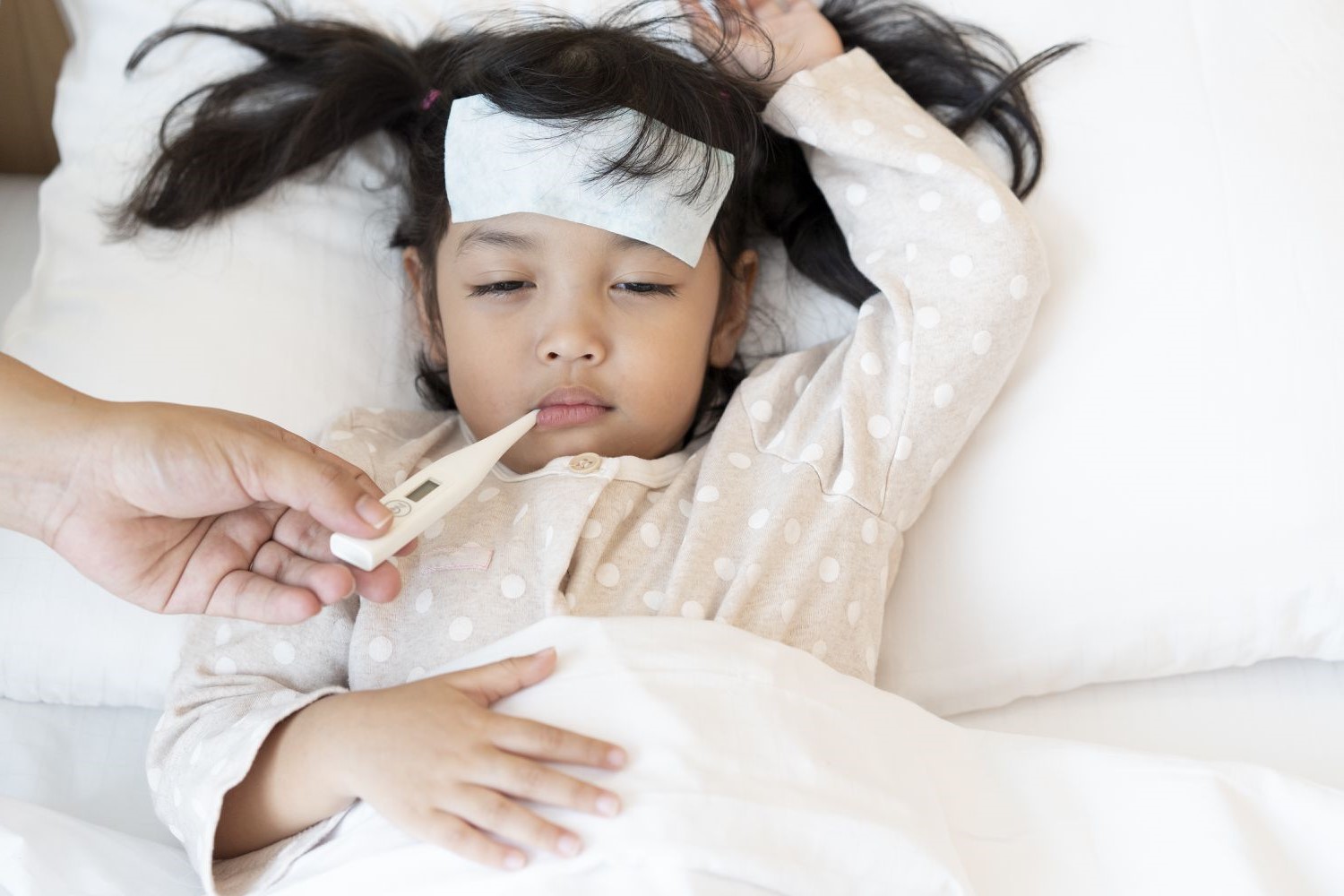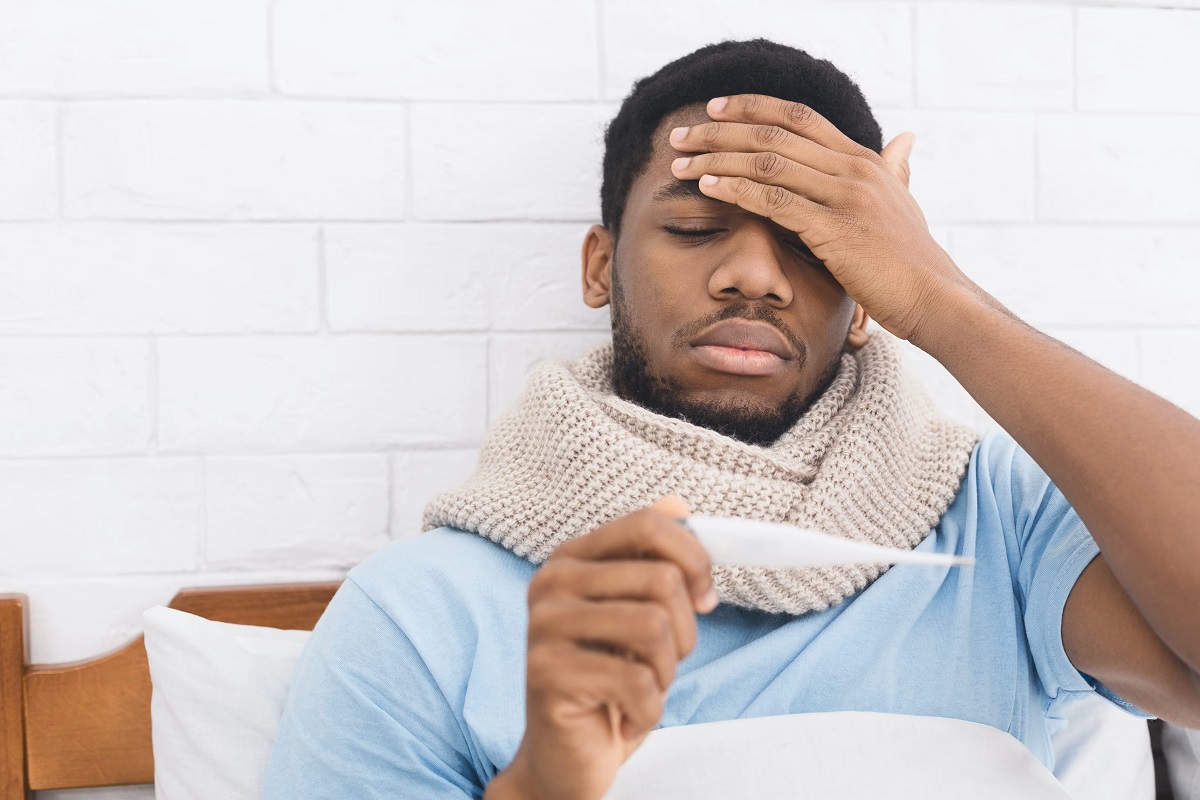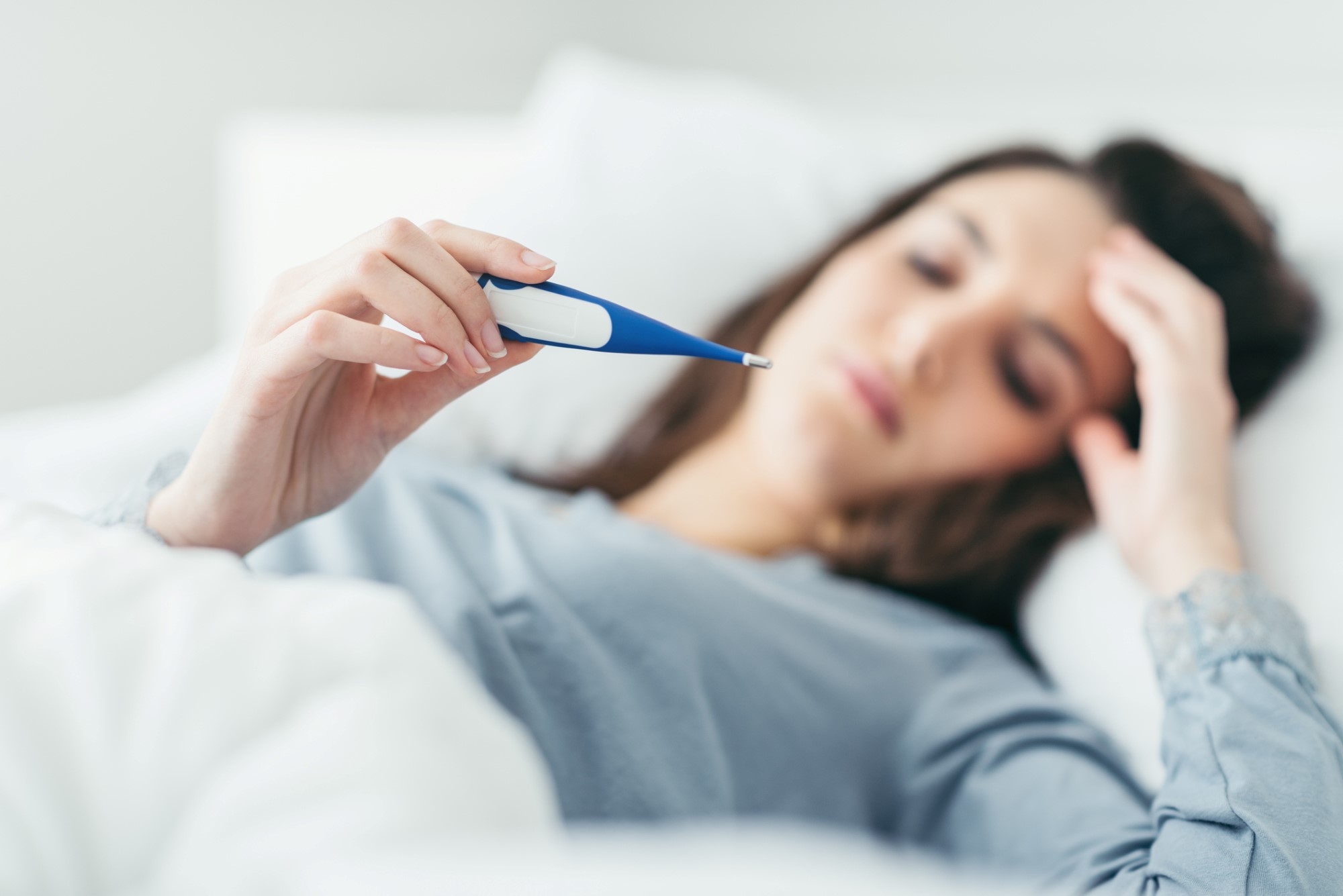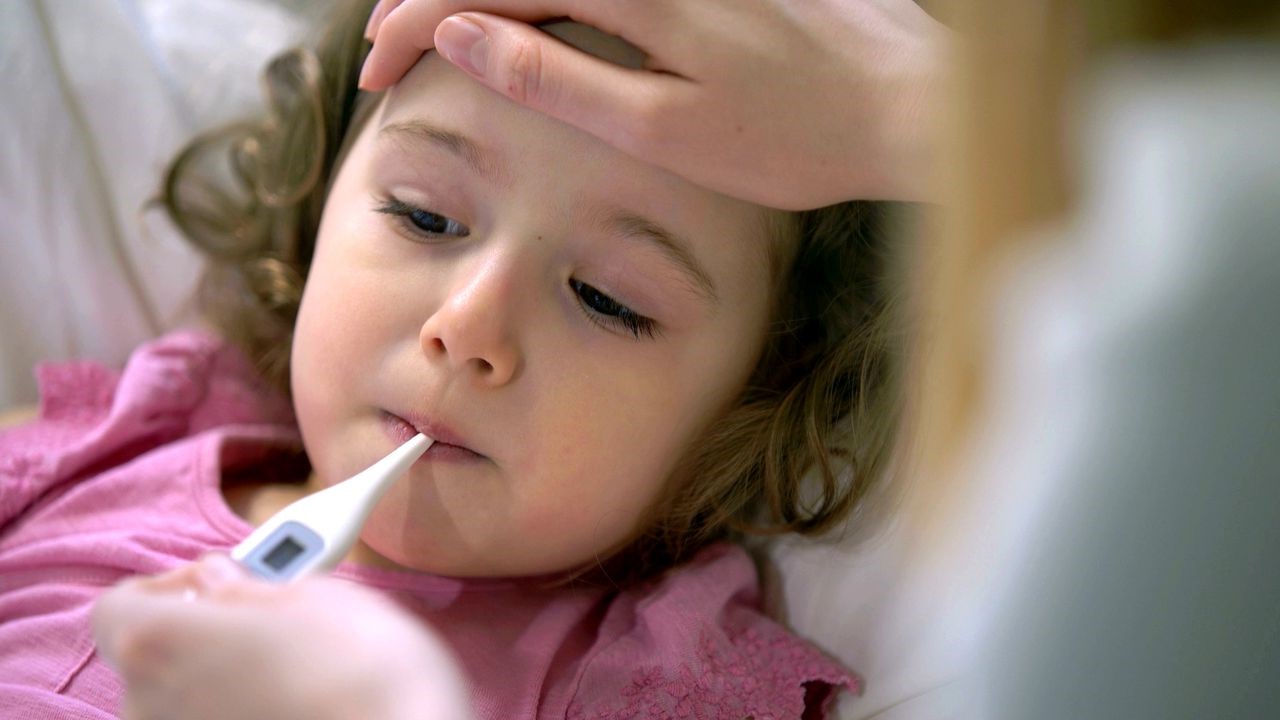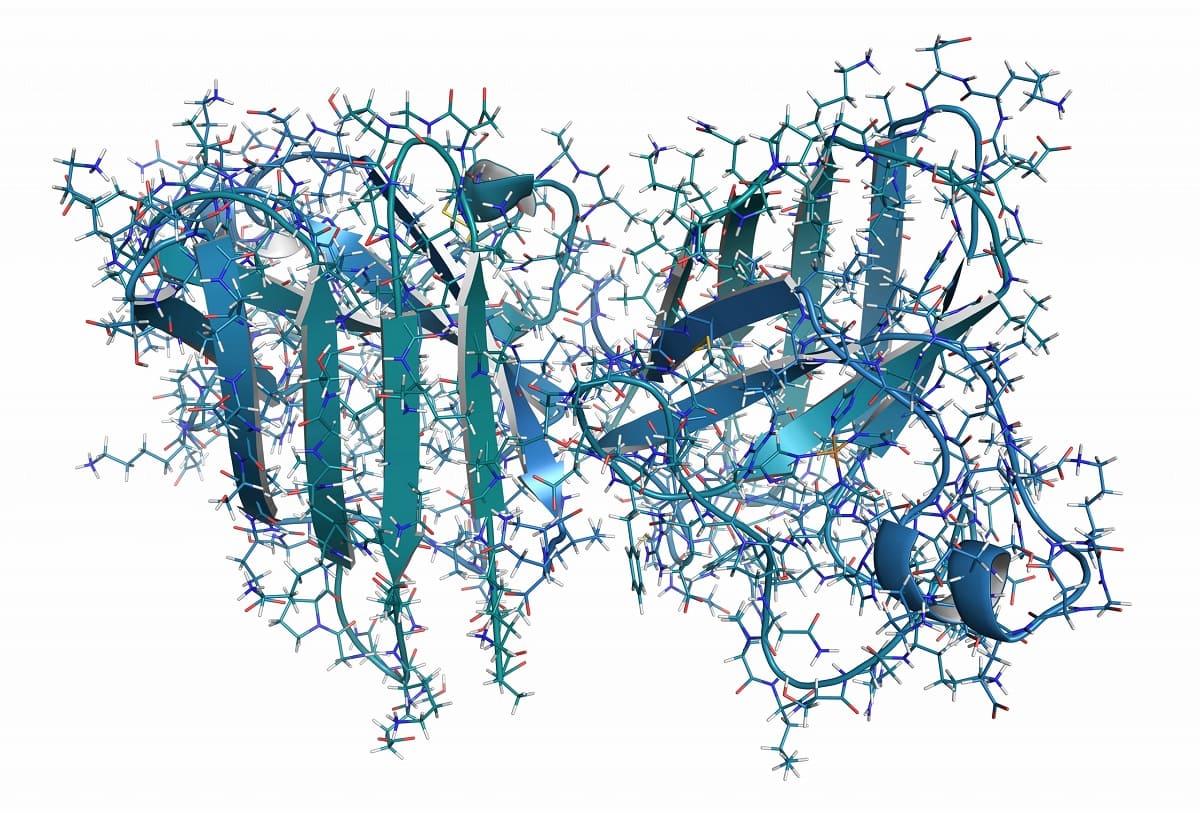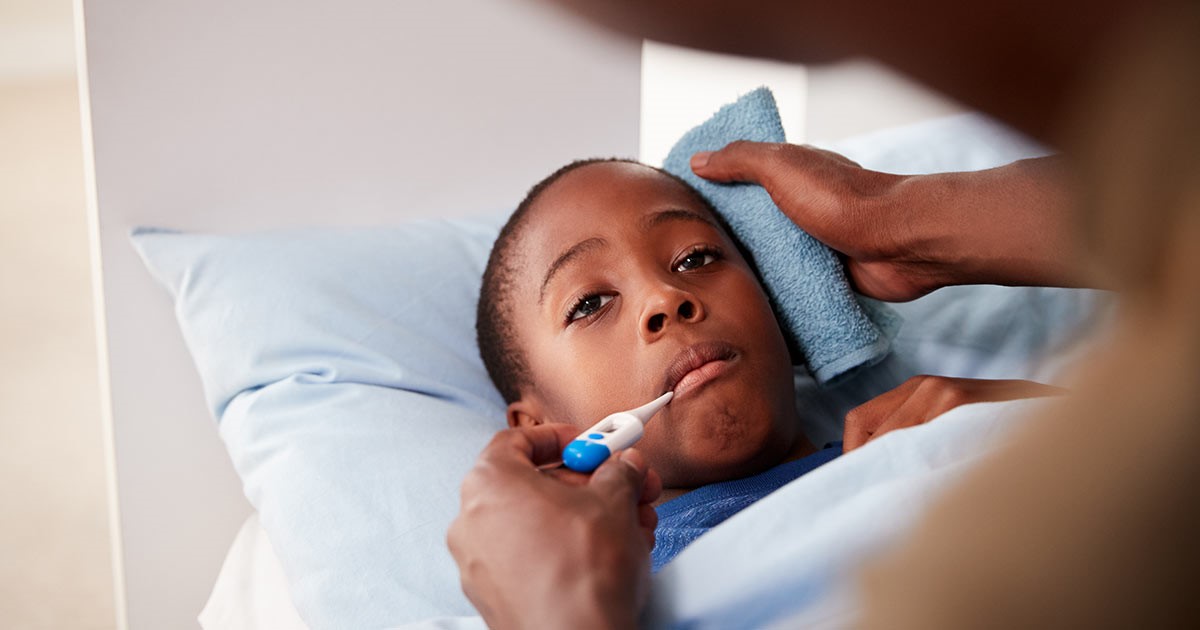Home>Health & Nutrition>Causes And Remedies For Nighttime Fever
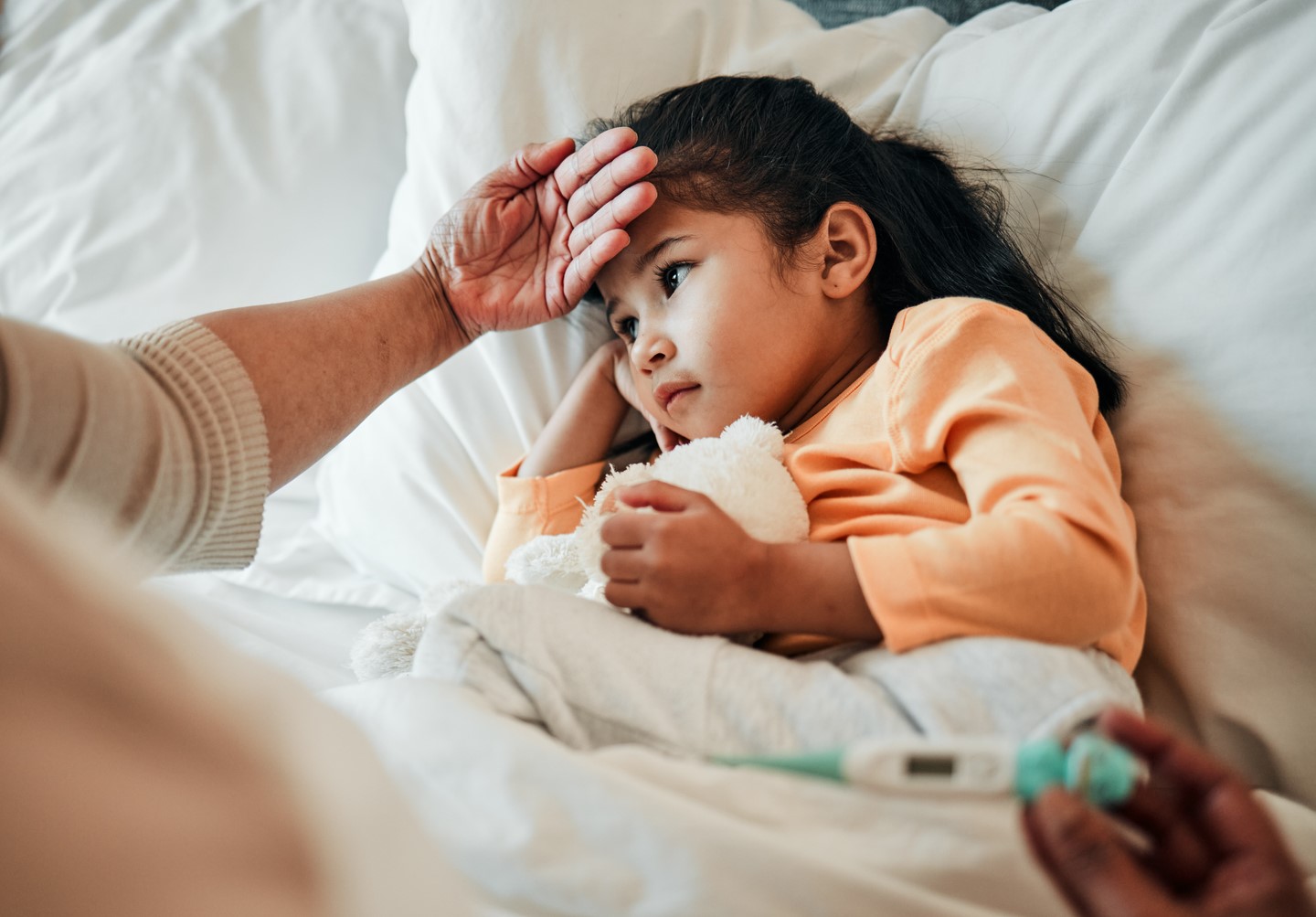

Health & Nutrition
Causes And Remedies For Nighttime Fever
Published: March 5, 2024
Learn about the causes and remedies for nighttime fever to maintain optimal health and nutrition. Find expert advice and tips to manage nighttime fever effectively.
(Many of the links in this article redirect to a specific reviewed product. Your purchase of these products through affiliate links helps to generate commission for Temperatures.com, at no extra cost. Learn more)
Table of Contents
Understanding Nighttime Fever
Nighttime fever, also known as nocturnal fever, refers to an increase in body temperature during the night. This phenomenon can be perplexing and concerning for individuals experiencing it, as it disrupts the body's natural rhythm and can lead to discomfort and sleep disturbances.
The body's core temperature follows a circadian rhythm, typically reaching its lowest point in the early morning hours and gradually rising throughout the day. However, nighttime fever disrupts this pattern, causing the body temperature to spike during the night, often leading to sweating and discomfort.
Understanding the underlying causes of nighttime fever is crucial in addressing this issue effectively. It can be a symptom of an underlying medical condition or a result of various lifestyle factors, making it essential to identify the specific triggers contributing to this disruptive pattern.
By gaining insight into the factors contributing to nighttime fever, individuals can take proactive steps to address the root cause and alleviate its impact on their overall well-being. Whether it stems from an underlying health issue or lifestyle-related factors, understanding nighttime fever is the first step toward finding relief and restoring a sense of balance to the body's natural rhythms.
Common Causes of Nighttime Fever
Nighttime fever can stem from various factors, ranging from mild to severe. Understanding these common causes is essential in identifying the underlying triggers and seeking appropriate remedies. Here are some prevalent factors contributing to nighttime fever:
-
Infections:
- Bacterial, viral, or fungal infections can lead to nighttime fever. Conditions such as urinary tract infections, respiratory infections, and tuberculosis often manifest with elevated body temperature during the night as the body's immune response becomes more active.
-
Inflammatory Disorders:
- Conditions characterized by chronic inflammation, such as rheumatoid arthritis and inflammatory bowel disease, can cause nighttime fever. The body's heightened inflammatory response during the night can lead to an increase in body temperature.
-
Medication Side Effects:
- Certain medications, including antibiotics, antidepressants, and antiretrovirals, may induce nighttime fever as a side effect. It's essential to consult a healthcare professional if experiencing persistent nighttime fever while on medication.
-
Hormonal Imbalance:
- Hormonal fluctuations, particularly in women during menstruation or menopause, can contribute to nighttime fever. The body's hormonal shifts can impact thermoregulation, leading to temperature spikes during the night.
-
Autoimmune Conditions:
- Autoimmune disorders, such as lupus and multiple sclerosis, can disrupt the body's immune response, leading to nighttime fever as the immune system becomes more active during the night.
-
Cancer:
- Certain types of cancer, such as lymphoma and leukemia, can cause nighttime fever as a result of the body's response to the underlying malignancy.
-
Stress and Anxiety:
- Psychological stress and anxiety can trigger nighttime fever due to the body's heightened physiological response to stress hormones, leading to an increase in body temperature during the night.
-
Environmental Factors:
- Exposure to extreme temperatures or environmental pollutants can disrupt the body's thermoregulation, potentially leading to nighttime fever.
Understanding these common causes of nighttime fever is crucial in identifying the underlying factors contributing to this disruptive pattern. By recognizing these triggers, individuals can seek appropriate medical evaluation and take proactive steps to address the root cause of nighttime fever, ultimately restoring a sense of balance to their body's natural rhythms.
Medical Conditions Associated with Nighttime Fever
Nighttime fever can be indicative of various medical conditions, ranging from infectious diseases to autoimmune disorders. Understanding these underlying medical conditions is crucial in identifying the specific triggers contributing to nighttime fever and seeking appropriate medical intervention.
-
Infectious Diseases:
Infectious diseases such as tuberculosis, malaria, and HIV/AIDS can cause nighttime fever as the body's immune response becomes more active during the night to combat the underlying pathogens. Additionally, conditions like endocarditis and abscesses may manifest with nighttime fever as a prominent symptom. -
Autoimmune Disorders:
Autoimmune conditions, including lupus, rheumatoid arthritis, and inflammatory bowel disease, can lead to nighttime fever due to the body's heightened immune response and inflammatory processes. These disorders often disrupt the body's natural temperature regulation, resulting in elevated body temperature during the night. -
Cancer:
Certain types of cancer, such as lymphoma, leukemia, and other malignancies, can cause nighttime fever as a result of the body's response to the underlying disease. The presence of tumors and the body's immune reaction to cancer cells can lead to fluctuations in body temperature, particularly during the night. -
Endocrine Disorders:
Disorders affecting the endocrine system, such as hyperthyroidism and adrenal insufficiency, can disrupt the body's hormonal balance, leading to nighttime fever. Hormonal imbalances can impact thermoregulation, resulting in elevated body temperature during the night. -
Neurological Conditions:
Certain neurological disorders, including central nervous system infections and autoimmune conditions affecting the nervous system, can lead to nighttime fever. Conditions such as meningitis and encephalitis may present with nighttime fever as a prominent symptom, reflecting the body's response to neurological inflammation. -
Medication Reactions:
Adverse reactions to medications, particularly those affecting the central nervous system or immune system, can lead to nighttime fever. It's essential to monitor medication side effects and consult healthcare professionals if experiencing persistent nighttime fever while on medication.
Understanding the medical conditions associated with nighttime fever is paramount in seeking appropriate medical evaluation and intervention. By recognizing the specific underlying conditions contributing to nighttime fever, individuals can work with healthcare providers to address the root cause and develop targeted treatment strategies to alleviate nighttime fever and its associated symptoms.
Lifestyle Factors Contributing to Nighttime Fever
In addition to medical conditions, lifestyle factors can significantly contribute to nighttime fever. Understanding these influences is crucial in addressing the root cause of this disruptive pattern and implementing effective remedies. Lifestyle factors contributing to nighttime fever include:
-
Diet and Nutrition: Consuming spicy foods, caffeine, or alcohol close to bedtime can elevate body temperature, potentially leading to nighttime fever. Additionally, dehydration resulting from inadequate fluid intake can impact thermoregulation, contributing to temperature fluctuations during the night.
-
Physical Activity: Engaging in vigorous exercise or physical exertion close to bedtime can elevate body temperature, leading to nighttime fever. The body's metabolic processes and heat production during physical activity can disrupt the natural cooling mechanisms, impacting the body's temperature regulation during sleep.
-
Stress and Anxiety: Psychological stress and anxiety can trigger physiological responses, including an increase in body temperature during the night. The body's heightened stress response can lead to elevated cortisol levels, impacting thermoregulation and potentially causing nighttime fever.
-
Sleep Environment: Environmental factors such as excessive bedding, high room temperature, or inadequate ventilation can contribute to nighttime fever. These factors can disrupt the body's ability to dissipate heat, leading to elevated body temperature during sleep.
-
Clothing Choices: Wearing excessive or inappropriate clothing layers to bed can impact the body's ability to regulate temperature, potentially leading to nighttime fever. Proper sleep attire that promotes thermal comfort is essential in maintaining optimal body temperature during sleep.
-
Smoking and Substance Abuse: Tobacco and certain substances can impact the body's thermoregulation, potentially leading to nighttime fever. Nicotine and other compounds in tobacco products can stimulate metabolic processes, leading to elevated body temperature during the night.
Understanding these lifestyle factors is essential in identifying potential triggers for nighttime fever. By addressing these influences and making appropriate adjustments, individuals can take proactive steps to mitigate the impact of lifestyle-related factors on nighttime fever, ultimately promoting better sleep quality and overall well-being.
By recognizing the specific lifestyle factors contributing to nighttime fever, individuals can make informed choices to create a sleep-conducive environment and promote optimal temperature regulation during the night. This holistic approach, combined with medical evaluation and targeted interventions, can significantly alleviate the disruptive effects of nighttime fever, ultimately restoring a sense of balance to the body's natural rhythms.
Remedies for Nighttime Fever
Addressing nighttime fever involves a multifaceted approach that encompasses medical interventions, lifestyle modifications, and environmental adjustments. By implementing targeted remedies, individuals can effectively alleviate nighttime fever and promote better sleep quality. Here are comprehensive remedies for addressing nighttime fever:
Medical Evaluation and Treatment
Seeking medical evaluation is paramount in identifying and addressing the underlying causes of nighttime fever. Healthcare professionals can conduct thorough assessments to diagnose any potential medical conditions contributing to nighttime fever. Based on the diagnosis, targeted treatment strategies, including medications, immunotherapy, or hormonal interventions, can be prescribed to address the specific underlying causes.
Medication Management
If nighttime fever is a side effect of certain medications, consulting healthcare providers to explore alternative treatment options or adjust medication dosages can be beneficial. Healthcare professionals can provide guidance on managing medication-related nighttime fever while ensuring optimal therapeutic outcomes for underlying health conditions.
Stress Management and Relaxation Techniques
Implementing stress-reducing practices, such as mindfulness meditation, deep breathing exercises, and progressive muscle relaxation, can help mitigate the physiological responses contributing to nighttime fever. These techniques promote relaxation, reduce stress hormone levels, and support the body's natural temperature regulation, ultimately alleviating nighttime fever.
Sleep Hygiene Practices
Adopting optimal sleep hygiene practices, including maintaining a consistent sleep schedule, creating a comfortable sleep environment, and practicing relaxation routines before bedtime, can promote better sleep quality and mitigate nighttime fever. Additionally, ensuring adequate ventilation, using breathable bedding, and regulating room temperature can support optimal thermoregulation during sleep.
Read more: Understanding Fever: Causes And Symptoms
Dietary Adjustments
Making dietary modifications, such as avoiding spicy foods, caffeine, and alcohol close to bedtime, and staying adequately hydrated, can help regulate body temperature and reduce the likelihood of nighttime fever. Consuming light, easily digestible meals in the evening can support the body's natural cooling processes during sleep.
Lifestyle Modifications
Engaging in regular physical activity earlier in the day, managing stress through healthy coping mechanisms, and avoiding excessive physical exertion close to bedtime can contribute to better temperature regulation and reduce nighttime fever. Additionally, wearing breathable sleep attire and maintaining a comfortable sleep environment can support optimal thermal comfort during the night.
Environmental Considerations
Creating a sleep-conducive environment by regulating room temperature, ensuring adequate ventilation, and optimizing bedding and sleep attire can significantly alleviate nighttime fever. Addressing environmental factors that impact thermal comfort can promote better temperature regulation and enhance overall sleep quality.
By integrating these comprehensive remedies, individuals can effectively address nighttime fever and its associated disruptions, ultimately promoting better sleep quality and overall well-being. It's essential to approach nighttime fever holistically, considering medical, lifestyle, and environmental factors to achieve optimal relief and restore a sense of balance to the body's natural rhythms.

